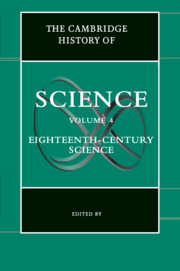30 - Japan
from Part IV - Non-Western Traditions
Published online by Cambridge University Press: 28 March 2008
Summary
The eighteenth century was one of Western recognition of Japan against the Chinese background. During that period, Japanese thinkers became critical of the Chinese scholarship with which they had struggled to keep pace in the previous century; for the first time, Japanese intellectuals from the extreme eastern regions of Asia began to compare Chinese scholarship with the infiltrating Western science. It is extremely interesting to see what happens to a paradigm from one culture – and the scholarly traditions that have evolved around it – when it is introduced into another. In the following pages we shall examine the impact of this transplantation, mainly on three disciplines: mathematics, astronomy, and medicine.
The Jesuits had been evangelizing in Japan since the mid-sixteenth century. Eventually, the Japanese government, considering Christianity a threat to the cohesiveness and integrity of Japanese culture, successfully banned all Westerners from the country with the exception of Protestant Dutch traders, who were restricted to the port of Nagasaki. This ban, which remained in effect until the mid-nineteenth century, was reinforced with bans on Jesuit writings in Chinese in the 1630s and further intensified in the 1680s.
- Type
- Chapter
- Information
- The Cambridge History of Science , pp. 698 - 717Publisher: Cambridge University PressPrint publication year: 2003
References
- 1
- Cited by

